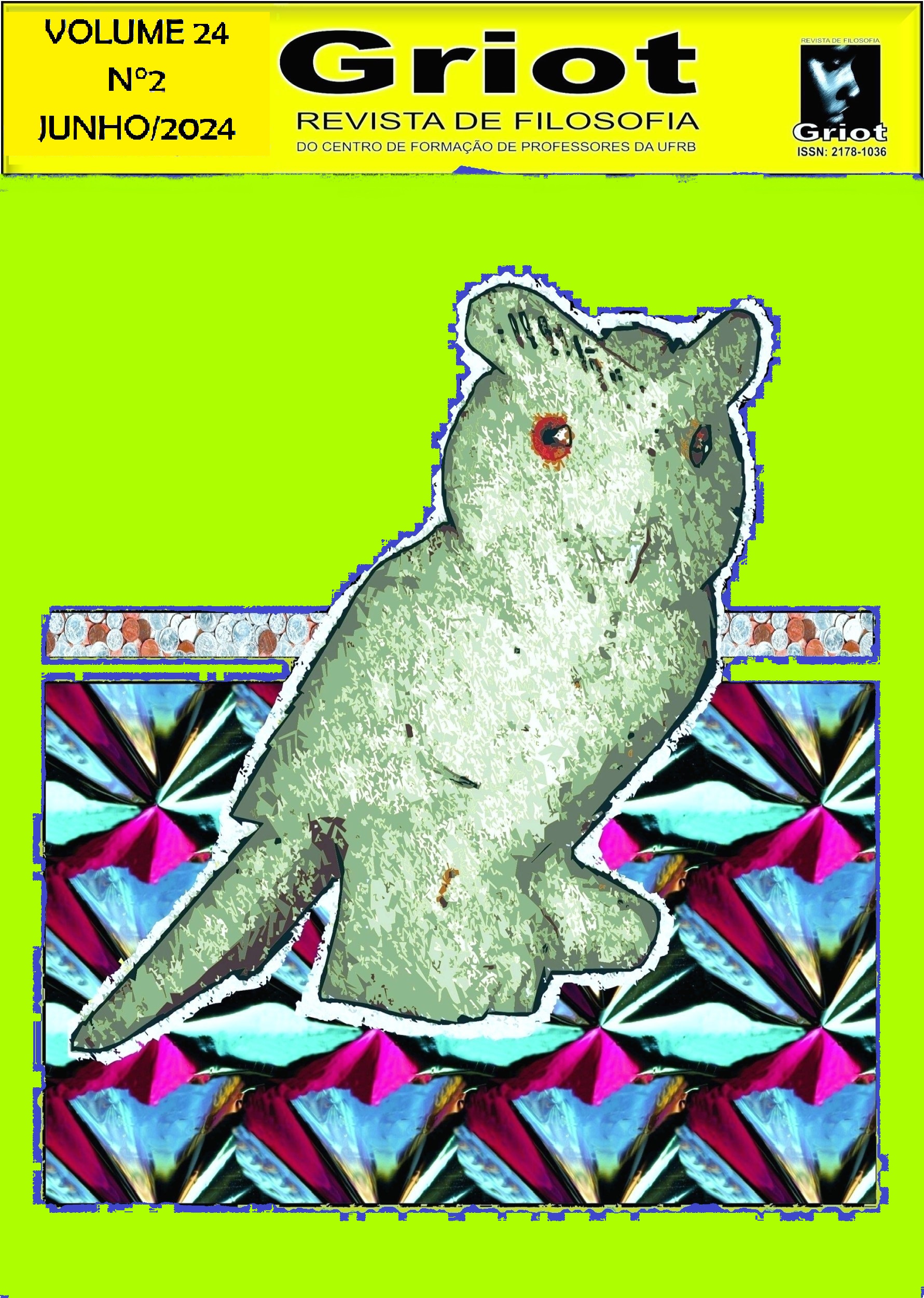Alternative modernity in Martin Heidegger’s works
DOI:
https://doi.org/10.31977/grirfi.v24i2.3282Keywords:
Martin Heidegger; Technicity; Nihilism; Liberalism; Alternative Modernity.Abstract
This article intends not only to comment on Heidegger’s question of technology, but also to designate technics as the sign of the rationalization of the world. A confrontation is then required against the technical world, in which it is inscribed the whole history of western metaphysics. This tradition, with the arrival of the technology age, proves to be nihilist, and, as such, demands from Heidegger, especially in his Contributions to philosophy (of the Event), to overcome the whole western tradition into another beginning. It is also considered that it is particularly in Modernity where the outcomes of the western rationality are most perceived, which conflates with the liberal order that reigns today. Therefore, we can contemplate the political dimension in Heidegger’s thought, in its broadest sense, and then to propose a confrontation with the whole western tradition, which blooms completely in the technological world and in the domination of Liberalism.
Downloads
References
DERRIDA, Jacques. Of spirit: Heidegger and the question. Londres, Chicago: University of Chicago Press, 1989.
FORACCHI, Marialice Mencarini (org.). Karl Mannheim: sociologia. Tradução de Emílio Willems, Sylvio Uliana e Cláudio Marcondes. São Paulo: Ática, 1982.
FUKUYAMA, Francis. The end of history and the last man. Nova York: The Free Press, 1992.
GADAMER, Hans-Georg. Hegel Husserl Heidegger. Petrópolis: Vozes, 2012.
GRIFFIN, Roger. Modernism and fascism. Nova York: Palgrave Macmillian, 2007.
HEGEL, G.W.F. Fenomenologia do Espírito. Petrópolis: Vozes, 2014.
HEIDEGGER, Martin. A auto-afirmação da universidade alemã. Tradução: Alexandre Franco de Sá. Covilhã, 2009a. Disponível em: <http://www.lusosofia.net/textos/heidegger_martin_auto_afirmacao_universidade_alema.pdf>. Acesso em 22/03/2023.
HEIDEGGER, Martin. Aus der Erfahrung des Denkens. Frankfurt am Main: Vittorio Klostermann, 1983.
HEIDEGGER, Martin. Contribuições à filosofia: do acontecimento apropriador. Tradução: Marco Antônio Casanova. Rio de Janeiro: Via Veritas, 2015.
HEIDEGGER, Martin. Ensaios e conferências. Petrópolis: Vozes; Bragança Paulista: Editora Universitária São Francisco, 2008.
HEIDEGGER, Martin. Introduction to metaphysics. Tradução de Gregory Fried and Richard Polt. New Haven, Londres: Yale University Press, 2000.
HEIDEGGER, Martin. Já só um Deus nos pode ainda salvar. Tradução: Irene Borges Duarte. Covilhã, 2009b. Disponível em: <http://www.lusosofia.net/textos/heideggger_ja_so_um_deus_nos_pode_ainda_salvar_der_spiegel.pdf>. Acesso em 22/03/2023.
HEIDEGGER, Martin. Poetry, Language, Thought. Nova York: Harper and Row, 1971.
HEIDEGGER, Martin. Nietzsche. Tradução: Marco Antônio Casanova. Rio de Janeiro: Forense, 2014.
LOPARIC, Zelijko. Martin Heidegger, 2014: Contribuições à Filosofia. (Do acontecimento apropriador). Tradução Marco Casanova. Rio de Janeiro: Via Vérita, 504p. Natureza Humana - Revista Internacional De Filosofia E Psicanálise, 17(1), 2016. Recuperado de < https://revistas.dwwe.com.br/index.php/NH/article/view/90 >
MANENT, Pierre. História intelectual do liberalismo. Lisboa: Edições 70, 1987.
TRAWNY, Peter. On freedom: technology, capital, medium. Tradução de Richard Lambert. Londres, Nova York: Bloomsbury Publishing Plc, 2017.
VALLEGA-NEU, Daniela. Heidegger’s poietic writings. Bloomington: Indiana University Press, 2018.
VATTIMO, Gianni. O fim da modernidade. Tradução de Eduardo Brandão. São Paulo: Martins Fontes, 1996.
WEBER, Max. A ética protestante e o “espírito” do capitalismo. São Paulo: Companhia das letras, 2004.
WOLIN, Richard. The politics of being: the political thought of Martin Heidegger. Nova York: Columbia University Press, 1990.
Downloads
Published
How to Cite
Issue
Section
License
Copyright (c) 2024 João Gabriel Paixão

This work is licensed under a Creative Commons Attribution 4.0 International License.
The authors who publish in Griot: Revista de Filosofia maintain the copyright and grant the magazine the right of first publication, with the work simultaneously licensed under the Creative Commons Attribution 4.0 International License, allowing sharing and adaptation, even for commercial purposes, with due recognition of authorship and initial publication in this journal. Read more...









































































